You can find many of the Fortune Global 500 companies’ headquarters in the ultra-modern business district of Marunouchi in Tokyo. Nestled between Tokyo Station and the Imperial Palace, Marunouchi is also home to shopping, art, dining, and more. Here are our top selections of what to check out in Marunouchi.
Table of Contents
- About Marunouchi
- Best Shopping and Dining Areas in Marunouchi
- Historical Sites, Parks, and Museums in Marunouchi
- Transportation
- Takeaway
About Marunouchi

You would never guess that Marunouchi used to be part of a castle town when you see the skyscrapers, but its location at the edge of the Imperial Palace gives hints as to its role in the past. It housed the feudal lords loyal to the Tokugawa Shogunate during the Edo Period.
Marunouchi began its transformation into a modern business district after the Edo Period ended with the purchase of properties by Mitsubishi around Edo Castle from the Meiji government. The area adapted to the changes in both the domestic and global political environment in order to remain a thriving financial, political, and cultural hub.
Marunouchi houses many of the top Japanese firms in finance and business. In addition, the ongoing Marunouchi Redevelopment Project since 2001 has already converted the area into a lively district not only during the day but at night and on weekends with many shopping and dining avenues, from Michelin-starred restaurants to more relaxed but atmospheric cafes, so it’s not just businessmen that come here anymore.
We have divided the top places we recommend into three sections: shopping and dining, parks and museums, and transportation.
Writer's Pick
Best Shopping and Dining Areas in Marunouchi
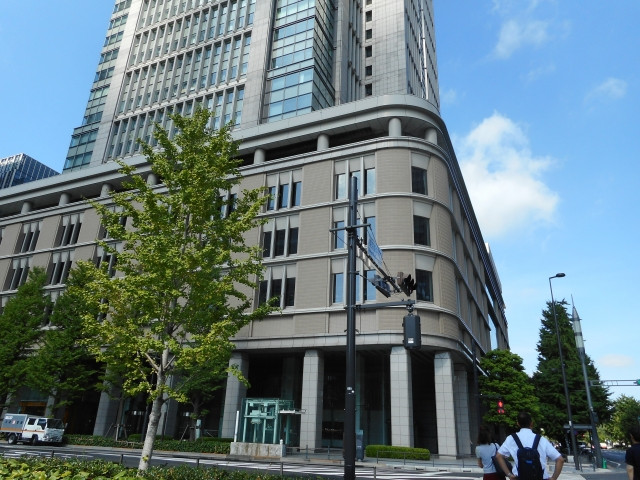
1. Marunouchi Building
The 37-floor, 179-meter tall skyscraper building can’t be missed as it’s right in front of Tokyo Station. Like many other buildings in this area, Marunouchi Building houses many corporate head offices, but that’s not all. You don’t have to work here to enjoy the food and shops that extend from the basement floor to the 6th floor. In the past, they’ve even had an ice skating rink on the 1st floor during the winter! And if you’re in a mood for something fancy, you can even head up to the 35th and 36th floors for some fine dining with a view.
Although there are many food options here, Tempura Tenmasa on the 35F is undoubtedly a must for those wanting a taste of the best and willing to pay for the luxury. The restaurant offers some of the best tempura in Japan since 1936 - the emperor is said to have even had this tempura! - and the sky-high diner with a gorgeous view of Tokyo Station makes it perfect for special occasions, especially for couples.
※Marunouchi Building ※Tempura Tenmasa (Japanese)
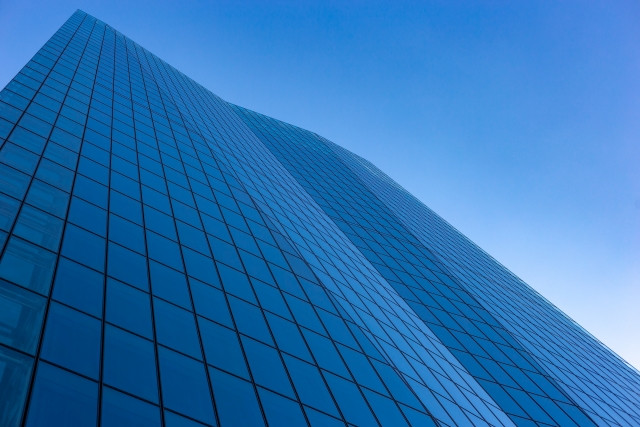
2. KITTE
Right next to Tokyo Station is an interesting looking building. The first 5 floors are a white classic European-looking building, but growing out of it at the top is a modern skyscraper. The building is called JP Tower while KITTE occupies the first six floors and the basement - and since people are here for the shopping and dining at KITTE, most people know it as such. At KITTE, you can find a huge event space on the first floor, surrounded by lots of shopping and dining options going all the way up to the 6th floor. You can find the entrance to JP Tower’s Intermediatheque on the second floor, the free museum dedicated to the history of learning across many subjects which was created as a joint project between Japan Post and the University of Tokyo. The highlight of KITTE for many though is the rooftop garden which gives you an incredible view of Tokyo Tower and the Marunouchi skyscrapers - worth it both during the day and at night.
※KITTE ※Intermediatheque
Tip: While KITTE gives you a side view of Tokyo Station, if you want to take photos from a height from the front, the balcony of Marunouchi House in Shin-Marunouchi Building is worth a visit. It’s a restaurant floor but you don’t have to buy anything to access the balcony.
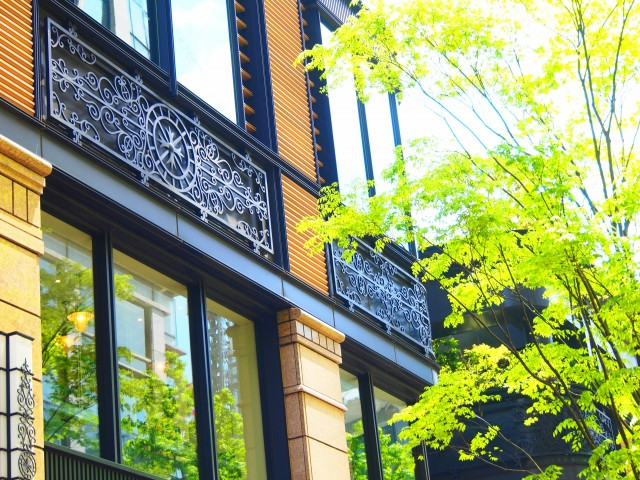
3. Marunouchi Brick Square
A European-style green courtyard hidden under tall skyscrapers, this hidden gem has upscale boutiques, museums and cafes. It includes the Mitsubishi Ichigokan Museum which we mention below. This beautiful square features fountains and greenery and is a nice spot to enjoy a cup of coffee, read a book or buy a nice present for someone special. Here you will find a variety of cuisines - French, Japanese, Italian, even curry. It's a popular place for the people working in the skyscrapers to relax so you'll see plenty of people on both weekdays and weekends.
※Marunouchi Brick Square
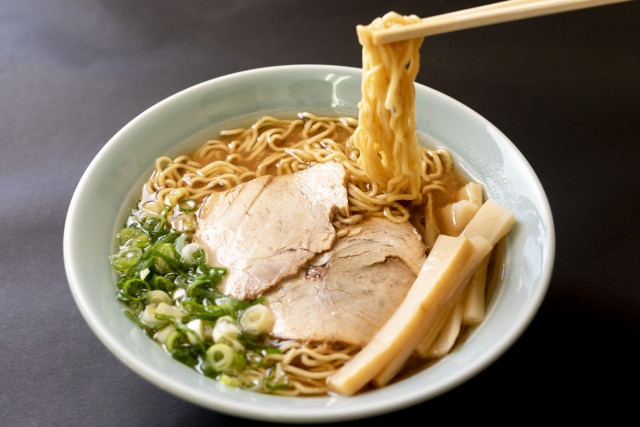
4. Tokyo Ramen Street
Inside the Tokyo Station complex, there is a section solely for ramen known as Tokyo Ramen Street. It has eight ramen shops, considered among the very best in the capital city, each with different menus and long queues outside them a testimony of quality food. So whether you're looking for vegan ramen, spicy ramen, or even ramen not from Tokyo, there is something for everyone - just be willing to wait for it!
The stalwarts of Ramen Street include Michelin Bib Gourmand Soranoiro Nippon with its vegan and gluten-free options, Oreshiki Jun known for its tonkotsu ramen, and Rokurinsha known for its tsukemen (where you dip the noodles into the broth) and its long lines.
※Tokyo Ramen Street
Historical Sites, Parks, and Museums in Marunouchi
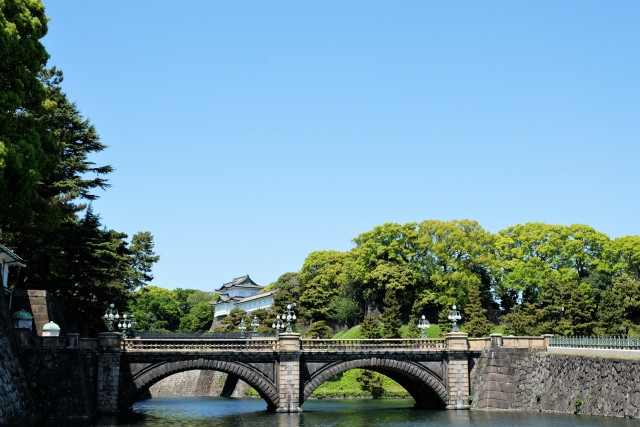
5. Tokyo Imperial Palace
If you walk from Marunouchi Exit of Tokyo Station in a straight line past the skyscrapers, you can find the residence of the Japanese Imperial Family. The Imperial Palace is built on the same grounds as the former Edo Castle, the remains of such still visible in the East Gardens. Certain areas including the East Gardens are open to the public; the inner grounds occupied by the Imperial Family are generally (and understandably) closed.
The East Gardens are known for their beautiful gardens and trees, especially popular during the spring and fall, and just general open space which is a huge contrast to the skyscrapers of Marunouchi. However, visitors can access part of the area closed to the public on two notable occasions: New Years (January 2) and the Emperor's birthday (currently celebrated on February 23) and wave to the Imperial Family. You can also get a guided tour of just one section of the closed off area if you make reservations in advance. Most people who visit just get a picture of the iconic Nijubashi Bridge and the palace buildings and walls surrounded by the beautiful extensive moat before or after heading to the East Gardens.
※The Imperial Palace
Read more about emperors in Japan in our article here.
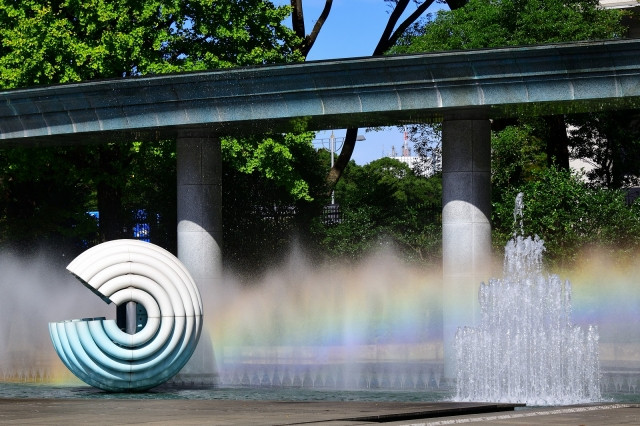
6. Wadakura Fountain Park
In front of the Imperial Castle is a park with an impressive fountain display, including a 30 meters long and 5.5 meters high fountain waterfall and other fountains which make up Wadakura Fountain Park. The park was built to commemorate the marriage of the former Emperor in 1961, and was then refurbished in 1995 to celebrate the current emperor's wedding. If you’re there at night, don’t miss the beautiful light show.
※Ministry of the Environment, “Wadakura Fountain Park”
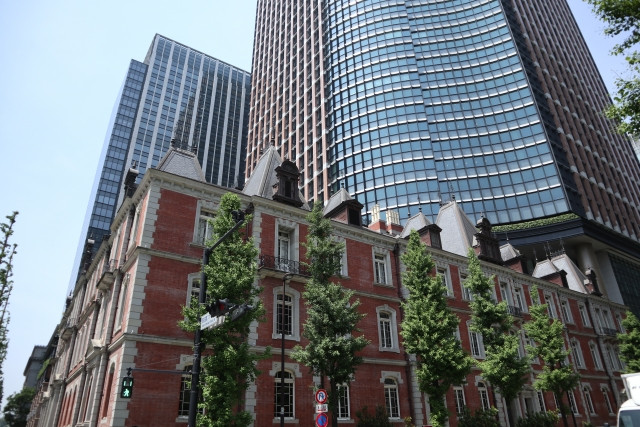
7. Mitsubishi Ichigokan Museum
The Mitsubishi Ichigokan Museum is a very dedicated reconstruction of the very first Western-style office building in this area from 1894, making it not only a place holding valuable art but historically significant itself. The red brick building is very iconic and has been used often in films, tv shows and commercials. It is part of Marunouchi Brick Square which we mentioned above, so many people check out the museum before enjoying the shopping and dining in Brick Square afterwards.
The museum, which opened in 2010, focuses mainly on Western art of the 19th and 20th centuries with regular special exhibitions held to highlight selected artists separately from its acclaimed permanent exhibition. The museum has even earned the Culture Promotion Award of the Western Art Foundation in 2011.
Its cafe is known not only for its sophisticated menu but also for the ambiance as it also recreates the historic background of the building. In addition, the museum gift shop is perfect for buying authentic items collected from around the world.
If you’re unable to visit currently, you can check out the virtual tour available on their website.
Hours: 10 am to 6 pm (enter by 5:30); closed on Mondays or the following day if Monday is a holiday, and for New Years holiday
Admission: Depends on the exhibition
※The Mitsubishi Ichigokan Museum
Transportation
8. Marunouchi Shuttle
Tired of walking? Well you can hop onto the Marunouchi Shuttle to rest your legs. It’s a free service that takes you around Otemachi, Marunouchi and Yurakucho, but you don’t have to stay on for the full route. You can jump on and off at whatever stop.
Hours: 8 am to 8 pm on weekdays; 10 am to 8 pm on weekends; comes every 12 to 18 minutes
※Marunouchi Shuttle
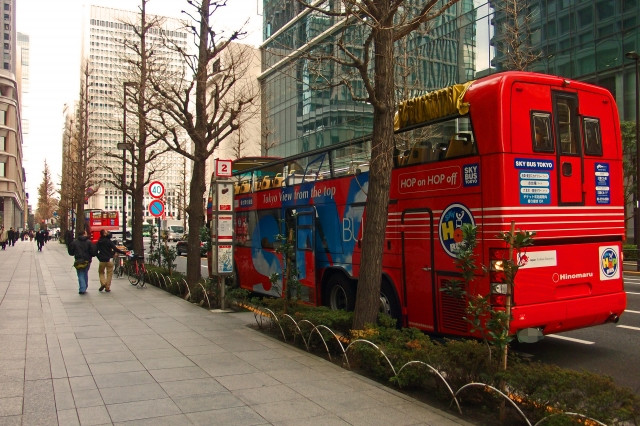
9. Skybus Tokyo
Skybus Tokyo offers a unique way to experience Marunouchi. You can experience the Imperial Palace, Ginza and Marunouchi from the 2nd floor of a 2-story bus. It is an educational and interactive tour, perfect for any age and level of interest. You get on the bus in front of Tokyo Station and it takes you around the Imperial Palace, to the Diet Building, over past Hibiya Park before looping back around to Marunouchi area. And the best thing is, you can enjoy it without walking! The best time (but hardest time to reserve) is in spring during cherry blossom season.
Cost: 1600 yen for adults; 700 yen for kids
Hours: 4 times a day, weekdays only; must reserve; 50-minute course
※Skybus Tokyo, "Marunouchi Course"
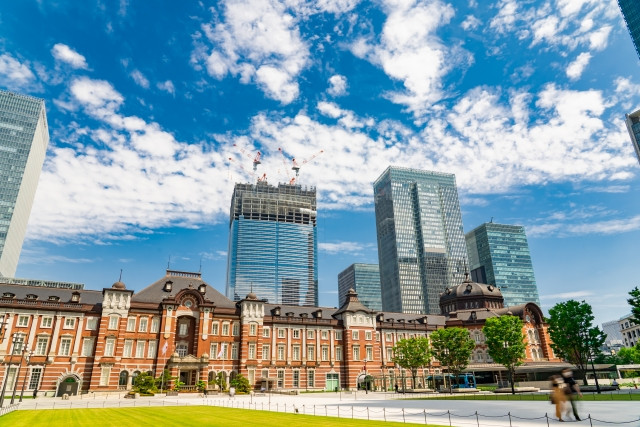
10. Tokyo Station
And of course, the most notable form of transportation in this area is through the extensive Tokyo Station. It is one of the busiest stations in the country and in the world.
Read all about Tokyo Station in our article Century-Old Tokyo Station: The Gateway to Your Destinations
Takeaway
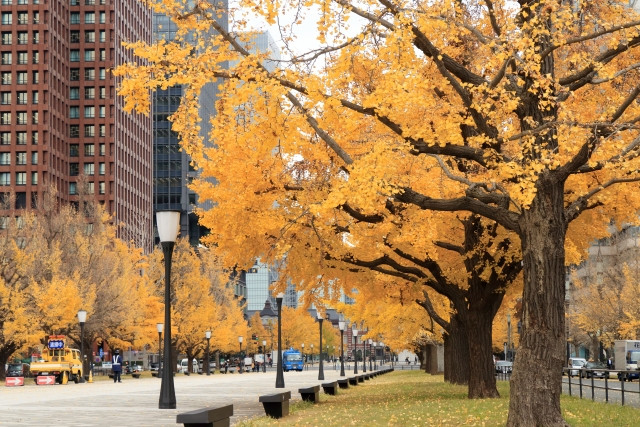
Marunouchi District in Tokyo is the perfect blend of traditional and modern. As one of Tokyo's most prestigious business districts, Marunouchi offers a taste of Tokyo's history and culture, as well as access to some of its most exciting modern-day destinations for visitors.






























